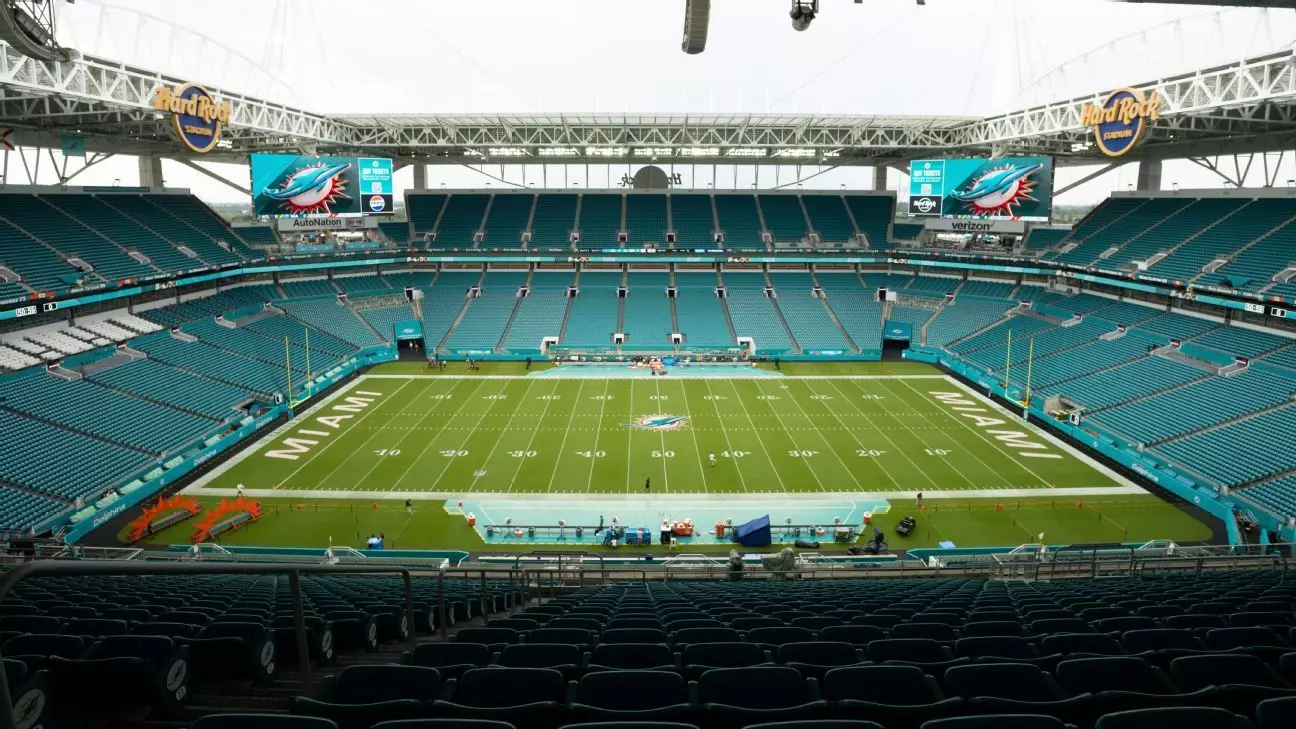LaLiga president Javier Tebas has set his sights on an ambitious goal: playing an actual competitive league match in Miami, a proposition that first emerged in 2018. At that time, a match between Barcelona and Girona was scheduled to take place at Miami’s Hard Rock Stadium, heralding a significant move towards the globalization of soccer. However, this prospect was met with substantial resistance from the Spanish Football Federation (RFEF), FIFA, and various stakeholders concerned about the implications of such expansions. The current landscape, however, has shifted slightly in favor of this international endeavor, thanks in part to ongoing legal actions involving Relevent Sports Group, a company linked to Miami Dolphins owner Stephen Ross.
After facing legal challenges in 2019 when FIFA intervened to thwart the planned match, Relevent Sports Group has made notable strides in its legal battle. The recent decision for Relevent and FIFA to settle their disputes may breathe new life into the plans for LaLiga’s foray into the American market. Tebas remains hopeful, stating that they will push for an agreement with the RFEF, which is currently in a state of uncertainty due to the absence of newly elected leadership. This administrative vacuum is causing delays that could impact the feasibility of hosting a match in Miami next season. Yet, the underlying legal changes may open doors for a future where such international matches become not just a dream but a reality.
While the idea of LaLiga games being played in the United States is enticing for fans and promoters, it is imperative to consider the implications for the players themselves. The current football calendar is already stretched thin, with players expressing increasing frustration over fixture congestion. Rodri, a midfielder for Spain and Manchester City, has suggested that players might resort to striking if conditions do not improve, reflecting a growing unrest within the ranks. This sentiment is echoed by David Aganzo, president of the Spanish Players’ Union (AFE), who has voiced support for players taking action if necessary.
The announcement of a 32-team Club World Cup set to be held in the United States next summer only heightens these concerns. The potential for additional matches could further exacerbate the already strained conditions under which professional players operate. There is a delicate balance to strike between expanding the game globally and ensuring the welfare and interests of the athletes who contribute to its success.
Tebas’ support for initiating LaLiga matches in the United States stands in stark contrast to his criticisms of the Club World Cup’s format. He acknowledges that fatigue and fixture congestion are legitimate concerns but maintains that these issues do not inherently negate the possibility of a LaLiga game in the U.S. This duality reflects the complexities of modern soccer, where commercial interests often clash with player welfare.
Despite friction with player representatives who argue against hosting league games abroad, Tebas insists that his support for international matches stems from a belief in the growth potential of the sport. He confronts criticisms with a resolve that demonstrates the challenges of navigating the intricate web of interests in modern soccer.
As Javier Tebas pushes ahead with his vision of hosting LaLiga matches in the U.S., the road is fraught with obstacles. From legal battles to the pressing concerns of players, the dream of expanding the league internationally requires careful consideration of various factors.
While there is excitement surrounding the possibility of experiencing LaLiga in a new territory, it is essential to proceed with caution, keeping the athletes’ well-being and the integrity of the sport at the forefront. Only time will reveal whether Tebas’ ambitions can materialize and if they will lead to a sustainable and beneficial expansion of soccer in the United States. With negotiations pending and the landscape shifting, the future of LaLiga in Miami is still clouded with uncertainty, making the journey toward internationalization a complex yet fascinating narrative to follow.

Leave a Reply